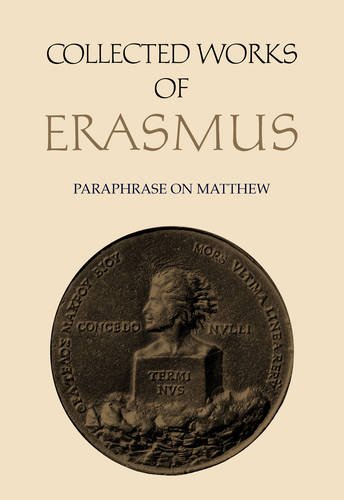

Most ebook files are in PDF format, so you can easily read them using various software such as Foxit Reader or directly on the Google Chrome browser.
Some ebook files are released by publishers in other formats such as .awz, .mobi, .epub, .fb2, etc. You may need to install specific software to read these formats on mobile/PC, such as Calibre.
Please read the tutorial at this link: https://ebookbell.com/faq
We offer FREE conversion to the popular formats you request; however, this may take some time. Therefore, right after payment, please email us, and we will try to provide the service as quickly as possible.
For some exceptional file formats or broken links (if any), please refrain from opening any disputes. Instead, email us first, and we will try to assist within a maximum of 6 hours.
EbookBell Team

0.0
0 reviewsErasmus yearned to make the Bible an effective instrument of reform in society, church, and everyday life. To this end, he composed the Paraphrases, in which the words of Holy Scripture provide the core of a text vastly expanded to embrace the reforming 'philosophy of Christ.' Matthew was Erasmus's first paraphrased Gospel and was thus the great theologian's first opportunity to set out a full portrait of the life of Jesus.
In this Paraphrase, the wonderful complexity of Jesus's life finds coherence in the conception of Him as a teacher. The baptism, the dove, and the divine voice attesting sonship are called the 'inaugurating ceremonies' that authenticate Jesus as the divine teacher of heavenly philosophy. His students are the disciples, who are to be teachers themselves, initiating an unending line of Christian teachers. The Jesus of this Paraphrase understands pedagogy: He adapts His teaching to the developing abilities of His pupils, quizzes them, and gently rebukes them. His actions as well as His words have one primary objective: to teach the disciples.
As a Preface to the Paraphrase, Erasmus wrote a 'Letter to the Pious Reader,' which became one of his most provocative and important essays. Like the more published Paraclesis, this 'Letter' vigorously advocates the translation of scripture into the vernacular languages, and proposes a 'confirmation' ceremony to encourage young people to assume responsibility for the vows taken for them at baptism by their sponsors.
This volume illuminates the early thinking of Erasmus and is a welcome addition to the Collected Works series.
Volume 45 of the Collected Works of Erasmus series.